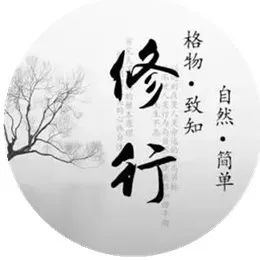

Dan Dao Yang Sheng
Daoist Practice | Zhe Long Dan Dao
Daoist Esoteric Arts | Bi Gu Tai Xi

Over the past decade, the practice of Qigong has faced numerous challenges and has made difficult progress. The wheel of history continues to roll forward, and I believe that Qigong will eventually break through the clouds and reveal a new dawn. For beginners in Qigong, it is essential to confront several issues, as these are inevitable challenges on your path of practice. Below, I will detail the six major issues that cannot be avoided in Qigong practice.
First, practicing Qigong requires perseverance and willpower. This is not an empty statement; there are many seekers, but few attain the Dao. Perseverance means to persist over the long term, while willpower means to practice unyieldingly. Many people initially claimed they could persist and had determination, but after more than a decade, how many still practice? Some began practicing Qigong to heal their ailments, but once they felt better, they stopped. Others sought to develop abilities but gave up after only achieving minor results. Some were too busy with work and abandoned their practice. There are also those who started with great confidence but succumbed to the temptations of desire, such as indulgence in alcohol and wealth, ultimately leading to their withdrawal. The last group may have practiced well initially, but when faced with a plateau in their Qigong progress, their confidence wavered, especially when confronted with malicious attacks on Qigong and even political risks, causing them to retreat and stop practicing.
Second, it is crucial to balance the relationship between Qigong for health and Qigong for cultivation. The greatest human desire is curiosity, and the greatest satisfaction is freedom. Ultimately, humanity seeks truth and understanding. Qigong cultivation can unveil the mysteries of humanity and allow one to explore the secrets of the universe through inner inquiry. However, Qigong for health and Qigong for cultivation are fundamentally different. People are more willing to accept health-promoting techniques but are often skeptical of higher-level cultivation practices, which cannot be easily explained by modern science and are often labeled as feudal or superstitious. Yet, those who are well-versed in Qigong cultivation pursue higher realms of practice, as only through this can one attain true self-realization and complete liberation.
Third, we currently lack the conditions to practice in the deep mountains, nor are we allowed to do so, as we are still worldly beings. Practicing Qigong in a complex society is challenging. First, one must manage relationships with family and neighbors; otherwise, if unusual phenomena occur during practice, it can cause unrest among those nearby, leading to criticism and making it difficult to concentrate on practice. Therefore, if you have unresolved worldly ties, you must prioritize work over Qigong cultivation. Generally, as long as you persist in practicing for one to two hours daily, you will experience significant physiological and psychological changes. By maintaining a practice state throughout the day (gently focusing on the lower dantian), after a hundred days, you will likely complete the stage of refining essence into Qi and form the Golden Elixir. After ten months of practicing for an hour each day, most people can complete the stages of refining Qi into spirit and nurturing the fetus. Once the Qi is sufficient and the fetus is round, one enters the stage of spirit emergence, where the five eyes and six spiritual powers begin to manifest.
After this stage, a balance between spiritual cultivation and worldly affairs begins to emerge. If one wishes to continue advancing in spiritual cultivation, they must enter the three-year stage of refining spirit and emptiness, known as the emergence of the Yang spirit, which can also lead to becoming exceptionally intelligent and achieving great success in their endeavors. However, all of this requires proper methods.
Fourth, understanding the principles is essential for clarity in practice. As the ancients said, “Without understanding the principles, do not discuss spiritual cultivation.” One must comprehend the truth and invest effort into understanding it. It is important to cultivate the habit of reading, asking questions, and learning, especially from classic texts on cultivation. Seek out wise teachers in these texts, and if possible, find accomplished monks to guide you. Combine your practical experiences with these teachings to grasp the essence of the Dao and attain genuine results. A single insightful phrase can be invaluable, leading to sudden enlightenment. However, one must discern which knowledge is useful and which is not. The true transmission of knowledge often comes from a single phrase rather than volumes of books.
Fifth, money is an indispensable material foundation in modern economic society. Without money, one cannot progress, and the same applies to the Qigong practice. In essence, one must navigate the commercial world while cultivating. If the relationship between survival in the commercial world and practice is not handled well, the effectiveness of the practice will be significantly reduced. This is an unavoidable issue; every aspect of life requires money. According to traditional Chinese beliefs, practitioners should not seek wealth or material possessions, but this clashes awkwardly with the traditional views on cultivation. Some practitioners object to fees for learning Qigong, which is an incorrect perspective. Qigong masters also need to live; they cannot rely solely on Qi gathering for sustenance. Renting space for teaching and printing materials incurs costs, and others will not treat you differently just because you practice Qigong. Therefore, without sufficient funds, one cannot sustain their path. It is not about seeking money, but one must have money; without resources, one cannot achieve the Dao.
During practice, there may be setbacks, which can be attributed to one’s accumulated habits from past lives or a lack of clarity in understanding the theory.
Methods must be transmitted by a teacher; without a master, there can be no correct practice, leading to detours. The heart’s method requires personal insight to some extent. Many teachings emphasize the unity of intention with the universe. How to achieve this unity is a matter of personal understanding and realization. Each person’s experience is unique, and understanding and insight are also crucial.
In my practice, I find that when I focus intently on a point, I quickly feel warmth and pulsation. However, this cannot last long, and my mind does not feel entirely at ease. If I allow the feeling to guide my focus, the results improve, but I must not cling to it. At this time, my breathing should not be overly fine, as that creates obstacles. When sensations arise, such as feeling treasures, if one is overly greedy, that feeling will gradually fade, and the heart will feel a sense of loss. If during practice, I observe my body both internally and externally without fixating on any one point, I feel a sense of emptiness and clarity, with a complete sense of comfort. Breathing seems to disappear, and the lower dantian begins to heat up and pulse, with sensations of warmth and lightness throughout the body. I understand this without clinging to it, allowing it to naturally transform. This is the state of having no attachment during practice, with the heart focused on emptiness.
All Buddhas share the same Dharma body; I am one with the Buddha in this Dharma body. If during practice, one only focuses on their individual self, they are merely cultivating a minuscule aspect of the Dharma body, resulting in minimal effects. By focusing on emptiness and cultivating the Dharma body as one, the effects will naturally be profound, and both the heart and the state of practice will differ from the ordinary.


